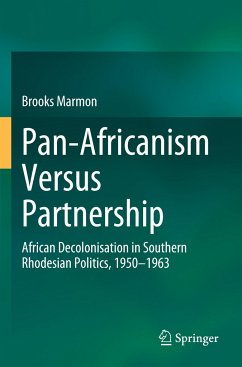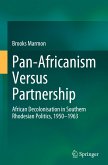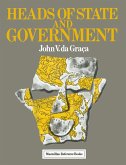This book takes the transnational history of southern Africa s liberation struggles in an innovative direction. It provides one of the first targeted studies of the manner in which the wider process of African decolonisation shaped the political struggle for control of Southern Rhodesia (colonial Zimbabwe). It offers an in-depth survey of the repercussions of pan-African developments on national-level political thought amidst one of the most seminal moments of the continent s history.
The book draws on over a year of fieldwork in southern Africa as well as archival collections in the USA and UK to explore the seismic re-alignments that occurred in the white settler dominated territory in southern Africa as self-determination became a widely accepted international principle virtually overnight. In particular, it focuses on the impact of decolonisation struggles and/or independence in Ghana, Nigeria, the Democratic Republic of the Congo and Malawi on Zimbabwe s liberation struggle. In so doing, it also offers new context on the roots of contemporary repression in Zimbabwe.
Includes a foreword contributed by noted Zimbabwean activist and author Judith Todd.
The book draws on over a year of fieldwork in southern Africa as well as archival collections in the USA and UK to explore the seismic re-alignments that occurred in the white settler dominated territory in southern Africa as self-determination became a widely accepted international principle virtually overnight. In particular, it focuses on the impact of decolonisation struggles and/or independence in Ghana, Nigeria, the Democratic Republic of the Congo and Malawi on Zimbabwe s liberation struggle. In so doing, it also offers new context on the roots of contemporary repression in Zimbabwe.
Includes a foreword contributed by noted Zimbabwean activist and author Judith Todd.
"This is a major contribution to the study of the liberation struggle in Zimbabwe ... . Brooks is to be congratulated for providing a hitherto unrivalled account of the interactions between Zimbabwean nationalism and the wider continent's post-independence politics." (Roger Southall, Journal of Southern African Studies, Vol. 50 (2), 2024)
"Brooks Marmon's Pan-Africanism versus Partnership is a welcome addition to the historiography of Zimbabwe's political history. ... This book offers a lot of new material for those interested in Zimbabwe's political situation during the pivotal period of the late 1950s and early 1960s." (Timothy Scarnecchia, Southern Journal for Contemporary History, Vol. 49 (1), 2024)
"Brooks Marmon's Pan-Africanism versus Partnership is a welcome addition to the historiography of Zimbabwe's political history. ... This book offers a lot of new material for those interested in Zimbabwe's political situation during the pivotal period of the late 1950s and early 1960s." (Timothy Scarnecchia, Southern Journal for Contemporary History, Vol. 49 (1), 2024)








